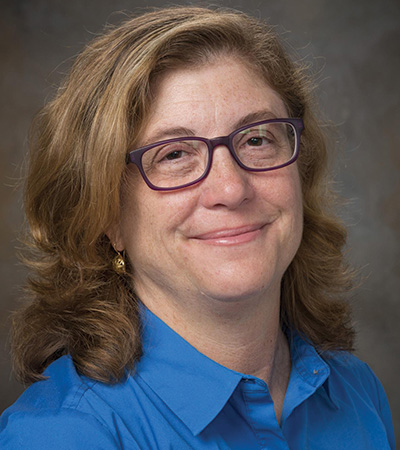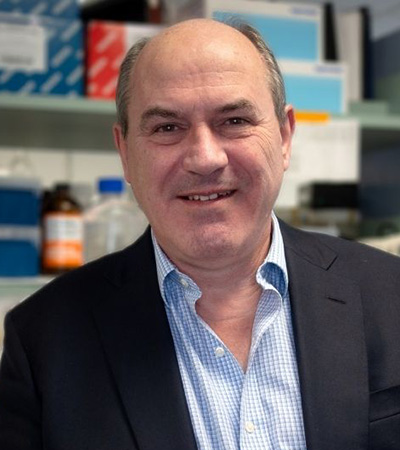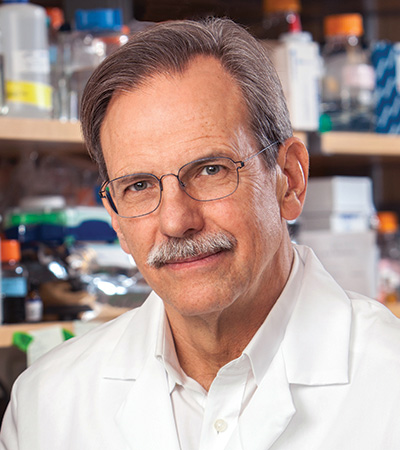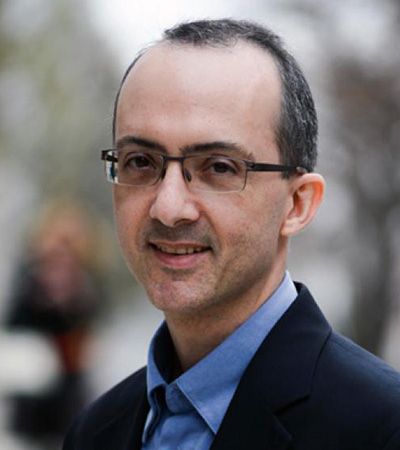NAM names members
The National Academy of Medicine recently inducted 100 new members, including four American Society for Biochemistry and Molecular Biology members: Susan Baserga, Roger Davis, Timothy Springer and Brent Stockwell. New NAM members are elected by existing members; the process recognizes individuals who have made major contributions to the advancement of the medical sciences, health care and public health.

Baserga is a professor of molecular biophysics and biochemistry and of genetics and therapeutic radiology at the Yale University School of Medicine. Her lab focuses on understanding how ribosomes are made in eukaryotic cells. In particular, they study the pathogenesis of ribosomopathies, diseases caused by abnormalities in ribosome biogenesis that can induce cancer.
In 2018, Baserga was elected as a fellow of the National Academy of Inventors. She has received the Connecticut Technology Council Women of Innovation in Research and Leadership Award, the Charles W. Bohmfalk Prize for basic science teaching at the Yale School of Medicine and the ASBMB’s William C. Rose Award for outstanding research and commitment to training young scientists. She is a 2023 ASBMB fellow and chairs the society’s Women in Biochemistry and Molecular Biology Committee.
The NAM honored Baserga “for pioneering the understanding of how ribosomes, the molecular factories that make proteins, assemble inside cells. Using a battery of approaches, she discovered a huge multi-molecular machine essential for ribosome formation in the cell nucleus.”

Davis is a professor and chair of molecular medicine at the University of Massachusetts Chan Medical School. His lab seeks to understand the role of JNK signaling in inflammatory diseases and how intervening in the pathway might address a wide variety of diseases. The Davis laboratory was the first to clone human cJun N-terminal kinase, or JNK.
Davis is a fellow of the Royal Society and a member of the National Academy of Sciences, National Academy of Inventors, American Academy of Arts and Sciences, American Academy of Microbiology, American Association for the Advancement of Science, Cambridge Philosophical Society, and European Molecular Biology Organization.
The NAM honored Davis “for his research leadership on mechanisms that mediate cellular stress responses. His seminal discoveries on the c-Jun NH2-terminal kinase signaling pathway provide a foundation for understanding the molecular basis of metabolic inflammatory responses in the development of obesity, metabolic syndrome, and type 2 diabetes.”

Springer is a professor of biological chemistry and molecular pharmacology at Harvard Medical School. His lab studies protein conformational changes in integrins, the von Willebrand factor, the transforming growth factor-β family and adhesins in malaria sporozoites. He discovered lymphocyte function-associated molecules, intercellular adhesion molecules, the first subfamily of integrins and the process of leukocyte diapedesis.
Springer has more than 500 publications and over 30 patents. He is a member of the National Academy of Sciences, and his honors include the Crafoord Prize, the American Association of Immunologists Meritorious Career Award and the Stratton Medal from the American Society of Hematology. He won the Canada Gairdner International Award in 2019.
The NAM honored Springer “for his research on receptor-ligand interactions and transmembrane signal transmission that are relevant to immunology, hemostasis, and human disease using structural, cell biological, and single molecule techniques.”

Stockwell received a 2007 Beckman Young Investigators Award and was named a 2009 Howard Hughes Medical Institute Early Career Scientist. In 2013, he published a book titled “The Quest for the Cure: The Science and Stories Behind the Next Generation of Medicine,” and, in 2014, he received the Lenfest Distinguished Teaching Award.
The NAM honored Stockwell “for his discovery of ferroptosis, a form of iron-driven, oxidative cell death involving lipid peroxidation. He defined its features, mechanistic basis, the key genes and proteins and inhibitors that regulate it, and tools to study it.”
Enjoy reading ASBMB Today?
Become a member to receive the print edition four times a year and the digital edition monthly.
Learn moreGet the latest from ASBMB Today
Enter your email address, and we’ll send you a weekly email with recent articles, interviews and more.
Latest in People
People highlights or most popular articles

Kiessling wins glycobiology award
She was honored by the Society for Glycobiology for her work on protein–glycan interactions.

2026 ASBMB election results
Meet the new Council members and Nominating Committee member.

Simcox wins SACNAS mentorship award
She was recognized for her sustained excellence in mentorship and was honored at SACNAS’ 2025 National Conference.

From humble beginnings to unlocking lysosomal secrets
Monther Abu–Remaileh will receive the ASBMB’s 2026 Walter A. Shaw Young Investigator Award in Lipid Research at the ASBMB Annual Meeting, March 7-10 in Washington, D.C.

Chemistry meets biology to thwart parasites
Margaret Phillips will receive the Alice and C. C. Wang Award in Molecular Parasitology at the ASBMB Annual Meeting, March 7-10 in Washington, D.C.

ASBMB announces 2026 JBC/Tabor awardees
The seven awardees are first authors of outstanding papers published in 2025 in the Journal of Biological Chemistry.
